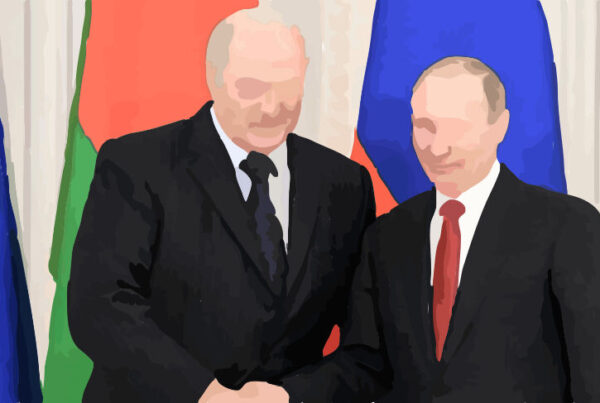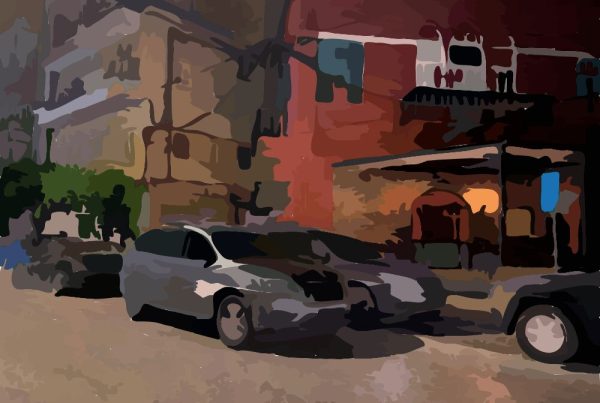A large part of media does not even seem to have noticed the importance of what happened Wednesday July 9th in Southeastern Asia, even though the historical relevance of the last presidential elections in Indonesia is indisputable: not only when hundreds of millions of people vote is a historical event in itself, but above all these elections were an epochal challenge between democracy and authoritarianism able to change the fate of Indonesia and of the whole Asia. “There were only two candidates and they could not have been more different one from the other. Most quick counts indicate that Jokowi has more votes than Prabowo, but the two candidates are neck and neck, the difference is so small that both claimed the victory. We have to wait for the official results, which should arrive by July 22,” explains King Oey, founder of Arus Pelangi (The flow of the rainbow).
Arus Pelangi (aruspelangi.org) is one of the most famous LGBT (lesbian, gay, bisexual, and transgender) organizations in Indonesia: it conduct a wide-ranging political battle on the issues of the rights related to sexual orientation and gender identity and expression. The association organizes campaigns on many occasions (such as the International Day Against Homophobia and Transphobia or the Human Rights Day), creates educational programs on gender and human rights, organizes LGBT groups at the local level, cooperates with other civil society organizations. “We can do all these things openly, because homosexuality is not criminalized in Indonesia,” says King Oey.
And yet, on the other hand, LGBT people’s life in Indonesia is not easy and discriminations and prejudices are numerous: “Society rejects homosexuality very strongly, because it’s seen as contrary to religious dogmas, especially the Islamic ones, and traditional family values. LGBT people are considered either as sinners or as sick people. In a survey of 2011, it came out that 85% of the population completely rejects the idea of having a gay or lesbian neighbor.” Politics, as it happens in many countries, doesn’t face the problem of homophobia, but rather adapts itself to societal prejudices: “The government has not been willing to recognize LGBT people as a genuine minority that deserves protection: they prefer to ignore us” reports King Oey.
As Teguh, manager of the LGBT association Suara Kita, explained to ilgrandecolibri.com, neither Joko Widodo, the democratic candidate better known as Jokowi, nor Prabowo Subianto, the heir of the dictatorship, have explicitly mentioned homosexual and transgender people’s rights in their election campaign. King Oey, however, points out some interesting differences: “Jokowi stated that he would actively pursue a human rights agenda, along with corruption eradication. On the other hand, there are rumors that Prabowo’s son, who works as fashion designer in Paris, is gay and their relationship seems anything but warm.”
The silence in the election campaign is even more grave when one considers the increasing number of attacks and sabotages that the LGBT community in Indonesia has suffered in recent years by Islamic fundamentalist groups, while police has remained indifferent. “The government has acted harshly against terrorist groups, but didn’t touch the ‘legal’ hardliners, who aim to establish an Islamic state with laws inspired by a draconian interpretation of Sharia – reports King Oey – The period of government of the current president, Susilo Bambang Yudhoyono, will go down in history as the apogee of political intolerance in Indonesia and for the proliferation of attacks against all minorities: Shias, Ahmadis, Christians and LGBT people all have borne the brunt of fundamentalist fury.”
Despite the silence in the election campaign, “LGBT voters have overwhelmingly voted Jokowi. And do not be surprised!” The two candidates are poles apart, as Teguh explained us and as King Oey reiterates: “Prabowo is a former army general with a dubious human rights track record and is also the son-in-law of the authoritarian president Suharto. Typical old-style candidate backed by most of the corrupt politicians, he presented himself as a strong leader with a nationalist agenda. Jokowi is a sober politician, he has nothing to do with elites, he’s pragmatic: it has become extremely popular when he was the mayor of his hometown Surakarta and in the short stint as governor of Jakarta.”
Another important aspect to be considered is the relationship that the two candidates have with religion: Jokowi is a faithful Muslim, but he said repeatedly he believes in an Islam as “rahmatan lil-alamin” (blessings for the world), that is in an Islam bearer of peace and not of hatred, and promised to defend the traditional Indonesian tolerance and the constitutional principle “Bhinneka Tunggal Ika” (unity in diversity).
Prabowo’s position, on the other hand, is more ambiguous, as King Oey explains: “Hardline groups supported him without him actively courting them. His coalition includes a heterogeneous mix of supporters who hate each other and he would have struggled to manage them if he was the winner: there are hardline groups and Muslim conservative parties, for whom ‘pluralism’ is a dirty word, but there is also a string of secular parties. Prabowo’s brother himself, a Christian businessman who financed his election campaign, has repeatedly shown his displeasure at the influence of militant Islam in the coalition – for example, a slander against Jokowi claimed that he was a closeted Christian.”
Is it possible that nearly half of a community democratically votes the heir of a dictatorship, the leader of a coalition full of shady powers, violent groups, corrupt politicians? Yes, indeed it is certainly not new: people like George W. Bush and Silvio Berlusconi were elected in democracies theoretically more “mature” than the Indonesian one.
King Oey provides us with a number of interesting analyzes to explain the success of Prabowo: “After a long dictatorship, the ‘easy’ parts of the democratization process can be accomplished in a few years, but some difficult and sensitive issues, such as the attainment of truth, reconciliation and the consolidation of tolerance, need more time (even decades) to be tackled Of course, the old guard, that in this case teamed up with Prabowo, not easily yield their powers and only the rise of a new generation of leaders with no links to the old regime can bring to completion the process of democratization. The really disturbing element, however, is that the image of the strong leader seems to have appealed more to the young voters than to older ones.”
Another element that strengthened Prabowo was the above mentioned support of the Islamists: “Indonesia is part of the globalized world and then it has to deal with the powerful tide of political Islam, both radical and moderate, which started in the 80’s and continues even today.” Not forgetting the material interests of the capitalist elite and of part of the middle class: “People more at ease with the current socio-political situation are afraid of Jokowi’s anti-corruption stance and voted for Prabowo.”
Fortunately, however, Jokowi should have won the elections, even if not so triumphantly. “A slight majority seems to be in favor of genuine change. These elections marked many paradigm changes compared to the previous ones. For example, they have shown that you haven’t to be a party leader to become a presidential candidate. And that you can mobilize thousands of volunteers if people like you.” Meanwhile, waiting the final results, can we have a sigh of relief?



